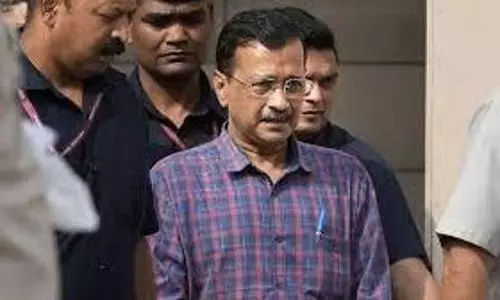
A third jolt to the economy
text_fieldsCome 1st February, another union budget will arrive. Pre-budget talks are taking place vigorously. When the discussions with industrialists were attended by minisers of home affairs, commerce, rural development and national highway, finance minister Nirmala Sitharaman was conspicuous by her absence.
There is nothing surprising in this for those who know about the cavalier fashion in which Modi government is dealing with the economy. But at the same time, what the people of India are eager to know is whether at least now the economy which is in sick bed, will get the dedicated attention it deserves. All figures underline the economic ill-health of the country. According to the latest figrues of Central Statistics Office, the economy is in worse condition than previously thought – with the worst crisis in the last 42 years. The estimated growth this year is lower than 5 per cent. It was only in 2008-09 that the growth rate went this low. But at that time, there was the cause of a very grave global economic recession. That is not the case this time. What has happened now is a recession of the government's own making.
The delay in acknowledging the recession and the derailing of remedial measures have created a very serious predicament. The cuts in corporate taxes and Goods & Services Tax (GST would have deepened the finance deficit. With the 3.1 per cent fall in Gross Domestic Product (GDP), deficit is likely to go out of hand. If the deficit in the last budget was determined as Rs 7 lakh Crore, this year by November itself it had crossed 8 lakh Crore. Experts say this is alarming. With each concession to stimulate the economy, the deficit keeps increasing which in turn overturns the economy further. This vicious cycle drags the country to a crisis at a fast pace. Public sector undertakings including the railways are being sold; even the surplus reserve of the Reserve Bank of India (RBI) is being snatched away. When the economy this is put in intensive care, the only segment that has made is the political parties – especially BJP. That party's income rose by 135 per cent in 2018-19 to reach Rs 2,410 Crore. On the other hand, the manufacturing-production sector, investments, labour, agriculture and services sectors all are in dire straits.
Those who cite government policies as the reason, specifically point fingers of blame at the note-ban and lopsided GST roll-out. The country whose back was broken by those two reforms which came one after the other, has now been jolted by a third one, i.e.the Kashmir operation and citizenship amendment. Although the Citizenship Amendment Act (CAA), National Register of Citizens and National Population Register all have primarily social-racial aims and implications, they also constitute a death warrant to an economy, already sinking. Figures indicate that this is more than what can be borne by not only Indian society but also for the economy. At a crisis point when even development plans are having to be shelved, what do the citizenship exercises and repression - that demand an expenditure of trillions of rupees - do to the Indian economy? Data that have trickled till now themselves are giving warnings of a frightening result. The internet ban for the last five months in Kashmir alone has cost the trade-industrial-tourism sectors hugely. Then, as a result of the CAA that follwed it, the ban is spreading to other states too. Thus, due to the internet curbs alone, the country has lost Rs 9,200 Crore. The smaller figures of losses at district level lie outside this. If internet is down for an hour, it brings a loss of Rs two and a half crore; and when protests happen, the government continues the ban on that pretext. This means nothing other than that bad laws bring in economic losses. And that will not be limited to internet ban. The unrest in the country has affected plenty of other sectors. The state of the society will affect trade; spread of insecurity will kill financial demand. As an extension, it will ward off investors and jobs will disappear and that will further deepen the crisis. Foreign investors lament that with the Kashmir-CAA opeations, the investor-friendly atmosphere of India has come to nought. The government's economic recovery package should therefore, also include repeal of its ill-advised acts that made matters this unpredictable.






















